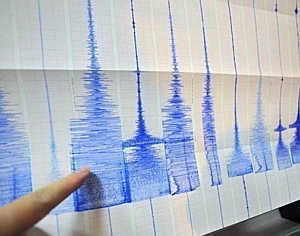Mexico City, Mexico - By most estimates, at least in recent years, the 7.6 magnitude earthquake that occurred on March 20, 2012 was second only in strength to the tremor that happened offshore of the states of Jalisco and Colima in 1995; a destructive event of 8.1 magnitude that triggered a moderate tsunami and killed at least 40.
Mexico City's earthquake wearied residents probably never even felt the two early morning seisms that occurred yesterday after enduring the shakings from the last few days, as well as the reported 400 plus aftershocks following the quake from last month. Yesterday's tremblers were very moderate; just over a four in magnitude.
The question is, "how did the new BlackBerry earthquake-warning app do?"
When Mexico City Mayor, Marcelo Ebrard, announced a BlackBerry app that would provide early warning of earthquakes, and that would be afforded to subscribers at no charge, he was highly commended. His announcement that the installation of up to 6,800 loudspeaker alarms in the public streets was also met with high praise.
However, so far, it hasnít worked.
The seisms that occurred on Thursday were too temperate to register, but the substantial 6.5 shaker that occurred on Wednesday should have. The problem is that if a quake is coming from Michoacan it wonít register on the app, as the alarm is only connected to seismic stations in the area of the state of Guerrero. That part of the early warning system is supposed to be implemented in the future.
It needs to happen soon.
Despite all the tussling of the last couple of days, no deaths and only minor property damage has been recorded. So far, the determined response of Mexico City's populace and authorities has been encouraging. The thousands of deaths of the catastrophic 1985 earthquake has left a heritage of civic responsibility that very few other facets of Mexican society can match.


